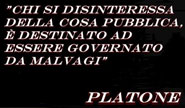| C O N F I D E N T I A L SECTION 01 OF 03 ROME 000125
SIPDIS
STATE PLEASE PASS TO USTR FOR JENNIFER CHOE GROVES, ERIN
MCCONAHA, CHRISTOPHER WILSON
STATE PLEASE PASS TO PHILLIP VERVEER
STATE PLEASE PASS TO EEB/TPP/IPE FOR TOM O’KEEFE, JOELLEN
URBAN
COMMERCE PLEASE PASS TO SUSAN WILSON
E.O. 12958: DECL: 02/03/2020
TAGS: ECPS, ETTC, KIPR, EINT, IT
SUBJECT: OPPONENTS OF ITALIAN INTERNET BILL SAY IT STIFLES
FREE SPEECH, THREATENS DEMOCRACY
REF: 09 ROME 0143
Classified By: Classified by DCM Elizabeth Dibble for
reasons 1.4 (b) a
nd (d)
1. (C) SUMMARY: Opponents of a new bill before Italian
parliament that would further regulate the Internet say it
endangers free speech and is a threat to Italian democracy.
The bill also appears to favor PM Berlusconi’s Mediaset
television service while disadvantaging Sky, one of its
major
competitors. The GOI says the bill is intended to implement
an EU directive that harmonizes media regulation and that
the
provisions being criticised are designed to establish
greater
protection of copyrighted material, to protect children from
inappropriate broadcasts, and to keep consumers from paying
twice by being subjected to excessive advertising on pay-TV
channels. Opponents say the law far exceeds the scope and
spirit of the EU law and severely restricts free expression
on the Internet. Due to advertising and content regulation
in the bill, some have read it as an effort to give
Berlusconi greater control over communication and to drive
out Mediaset’s competitors. Implementation of the bill has
been postponed from its original date of January 27 and
parliament is holding hearings on the matter. The GOI
appears open to discussion of the bill’s text. While
reaction to the bill has been strong among opposition
politicians and telecom professionals, the issue has not
made
it to the front pages of newspapers so there has been no
strong public reation. Despite GOI protestations, the bill
is troubling as it appears to have been written to give the
government enough leeway to block or censor any Internet
content. END SUMMARY
2. (SBU) According to the GOI, the Romani Bill (named for
Paolo Romani, Deputy Economic Development Minister, who
covers communications issues) is designed to implement EU
Directive 2007/65CE, which aims to harmonize media
regulation
in the EU. Many telecom sector professionals, however,
believe that the bill vastly exceeds the scope and spirit of
the EU law. The bill is complex, but there are three primary
areas of concern: limits to uploading on the Interet,
television advertising ceilings, and limits to content aimed
for adults, which would also restrict films judged by the
Italian rating system as being for those 14 and older. This
would likely include the vast majority if not all
U.S.-produced PG-13 movies.
– – – – – – – – – – – – – – – – – – –
LIABILITY FOR VIDEO ON THE INTERNET
– – – – – – – – – – – – – – – – – – –
3. (U) Provisions contained in the bill would make Internet
service providers (ISPs), and hosting sites such as Blogspot
and YouTube, liable for content in the same way a television
station is. In the strictest interpretation of the law, the
sites and ISPs would have to monitor all content on their
sites, content which is uploaded by millions of individual
users. This is widely viewed as impossible both in practical
and economic terms. The Italian Communications Authority
(AGCOM) would be responsible for oversight of the law, and
some have interpreted the bill as requiring government
permission before a video could be uploaded.
4. (C) Antonello Busetto, director of institutional
relations
for Confindustria Servizi Innovativi e Tecnologici, a
business association representing the interests of IT
companies, said the measure would mean “the death of the
Internet in Italy.”
5. (U) Italian communications commissioner Nicola D’Angelo
was quoted in the press as saying, “Italy will be the only
Western country in which it is necessary to have prior
government permission to operate this kind of service…This
aspect reveals a democratic risk, regardless of who happens
to be in power.” Likewise, AGCOM president Corrado Calabro
has said that Italy would be unique in the West as imposing
Internet restrictions until now only imposed by
authoritarian
governments.
6. (SBU) The GOI says the measure is aimed at protecting
copyrighted material from being uploaded and downloaded
ROME 00000125 002 OF 003
illegally, as well as at monitoring other potentially
illegal
activity on the Internet. The copyright industry has
expressed some limited approval of the bill. Enzo Mazza,
president of the Italian Music Federation, said the music
industry is generally in favor of making ISPs and sites more
responsible for protecting copyrighted material, though, he
added that his industry’s analysis of the bill was focused
on
this aspect and not other implications.
7. (SBU) Because this could make ISPs and opinion sites
liable for defamation in the way television broadcasts are,
some see this as an effort to control political discourse on
the Internet. Others see a commercial angle aimed at
limiting
the video and TV available on the Internet as Mediaset moves
into the Internet Protocol Television (IPTV) market.
Alessandro Gilioli, who writes a blog for the liberal weekly
magazine Espresso wrote “It’s the Berlusconi method: Kill
your potential enemies while they are small. That’s why
anyone doing Web TV — even from their attic at home — must
get ministerial approval and fulfill a host of other
bureaucratic obligations.”
8. (SBU) AGCOM would have the authority to enforce the law.
Among the authority’s powers would be the ability to block
traffic into Italy of sites whose content did not meet the
requirements of the law. For example, YouTube could be
blocked because the content was not uploaded with government
approval. AGCOM would also be able to levy fines of up to
150,000 euros against foreign companies violating the law.
Though AGCOM is theoretically an independent agency, many
fear that it may not be strong enough to resist political
pressure.
– – – – – – – – – – –
ADVERTISING CEILINGS
– – – – – – – – – – –
9. (C) The bill would place limits on advertising on pay-TV
channels that exceed the EU directive. It would reduce the
EU ceiling of 20% to 12% in Italy by 2012. The provision
would penalize Sky in particular. Some argue that the
measure is designed to favor PM Berlusconi’s free-to-air
Mediaset channels, which would not be subject to the limit.
Mediaset’s pay channels would be subject to the advertising
ceiling, but Mediaset’s channels currently have less than
12%
each hour dedicated to ads. In addition, reducing the
overall possibility to advertise on pay-TV would push
advertising towards free channels operated by Mediaset and
by
the Italian state network RAI. Busetto said this would allow
Berlusconi to earn more money and also to exercise greater
control of public information.
– – – – – – – – –
ADULT CONTENT
– – – – – – – – –
10. (SBU) The bill places stringent time restrictions on
broadcasting of so-called “adult content,” virtually
prohibiting it between 7 a.m. and 11 p.m. Pay channels such
as those offered by Sky would be subject to the restrictions;
it appears pay-per-view content would be as well. Because
they obtain a significant part of their income from pay
adult
content, pay-TV would suffer financially from this
restriction. The bill would limit broadcast of any film
rated for viewers above age 14 to after 10:30 p.m. One press
report said this would make films such as Saturday Night
Fever unavailable until late-night. Again, some opponents
worry that the objective is to hurt Mediaset’s competition.
– – – – – – – –
EU OPINION
– – – – – – – –
11. (U) Opinion at the EU appears to be conflicting.
According to press reports, the EU is threatening to start
an
infraction procedure against Italy for failing to swiftly
implement the media directive. At the same time, other press
reports say the restrictions in the Italian bill would
likely violate the EU e-commerce directive.
– – – – – – –
ROME 00000125 003 OF 003
COMMENT
– – – – – – –
12. (C) In official statements the government insists the
bill is in no way intended to stifle free speech. Opponents
are vocal and using alarmist language, but outside of
telecom
industries their numbers appear to be small. There has been
no visible public outrage, and even Beppe Grillo, a public
personality usually outspoken about government regulation,
especially that involving the Internet, has said very little.
13. (C) After Berlusconi was attacked in Milan in December
and a Facebook fan page for his attacker quickly amassed
fans, the GOI expressed the need for regulation of social
networking sites. At that time, Romani said the government
would work with ISPs and sites to develop a method of
self-regulation and that there would be no attempt to
legislate internet content. Despite Romani’s prior
statements, this bill appears to have been written to give
the government enough leeway to block or censor any Internet
content it deems defamatory or to be encouraging criminal
activity.
14. (C) For years, the USG has urged the GOI to take action
to protect copyrighted material on the Internet, in
particular encouraging the establishment of clear
notice-and-takedown procedures and cooperation among rights
holders and ISPs to prevent illegal filesharing. Italy has
done very little. Now, this bill skips over collaboration,
and suddenly moves directly to very stern regulation. In
light of its reluctance to take action on this issue in the
past, and also given the many commercial advantages that
this
law appears to give Mediaset and state TV, the GOI claim
that
Internet provisions of this law are aimed at copyright
protection alone are suspect.
15. (C) In all liklihood, if this bill were to become law as
it is currently written, little would change immediately in
the way Internet sites operate in Italy, and the average
11th
grader uploading video to his blog would never be targeted
for legal action. It would, however, provide a basis for
legal actions against media operators that proved to be
commercial or political competition for government figures.
Over the last three years we have seen several GOI efforts
to
exert control over the Internet, including one infamous
effort to require bloggers to obtain GOI journalism licenses.
16. (C) Advocates of Internet freedom have repeatedly warned
us that Italy’s traditional elites — on both sides of the
political spectrum — are very uncomfortable with the
Internet’s ability to bypass the traditional media that they
control. Becasue this new bill seems to address these kinds
of concerns, and because it also serves Berlusconi’s
business
interests, it is conceivable that this seemingly improbable
legislation might actually come into force in Italy. We note
that officers from SKY have told us that Deputy GOI Minister
Romani (for whom the new bill is named) has been leading
efforts within the GOI to help Berlusconi’s Mediaset and to
put SKY at a disadvantage. This represents a familiar
pattern: Berslusoni and Mediaset have been using government
power in this way ever since the days of Prime Minister
Bettino Craxi. In addition, this bill would set precidents
that nations such as china could copy or cite as
justification for their own crackdowns on free speech.
THORNE |


 La democrazia è cultura della sobrietà, del limite e della disciplina.
La partecipazione democratica che vogliamo non è lo scatto iniziale con il quale ci si inalbera di fronte alle ingiustizie, è una condizione esistenziale permanente figlia della convivenza e madre di una ostinata responsabilità.
La democrazia è cultura della sobrietà, del limite e della disciplina.
La partecipazione democratica che vogliamo non è lo scatto iniziale con il quale ci si inalbera di fronte alle ingiustizie, è una condizione esistenziale permanente figlia della convivenza e madre di una ostinata responsabilità.


 Nefandezze nazional-persicetane
Nefandezze nazional-persicetane




